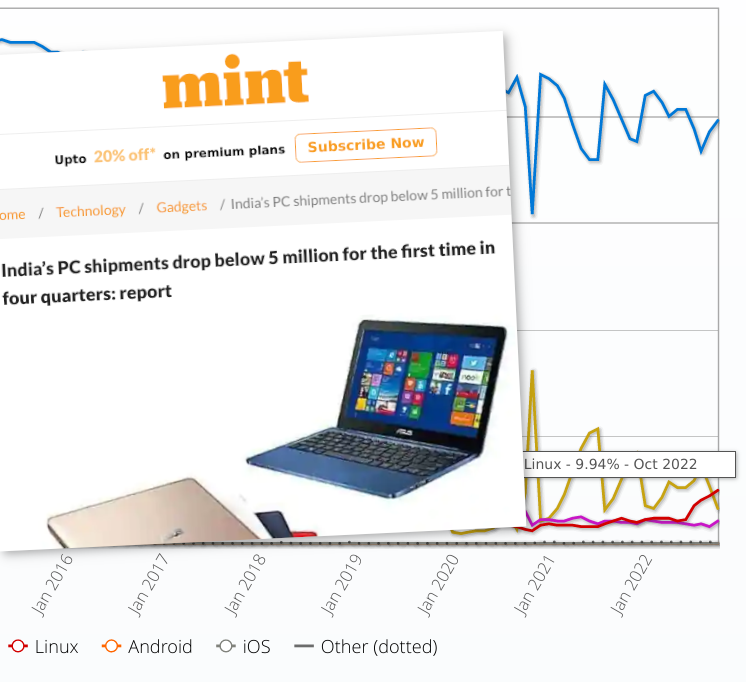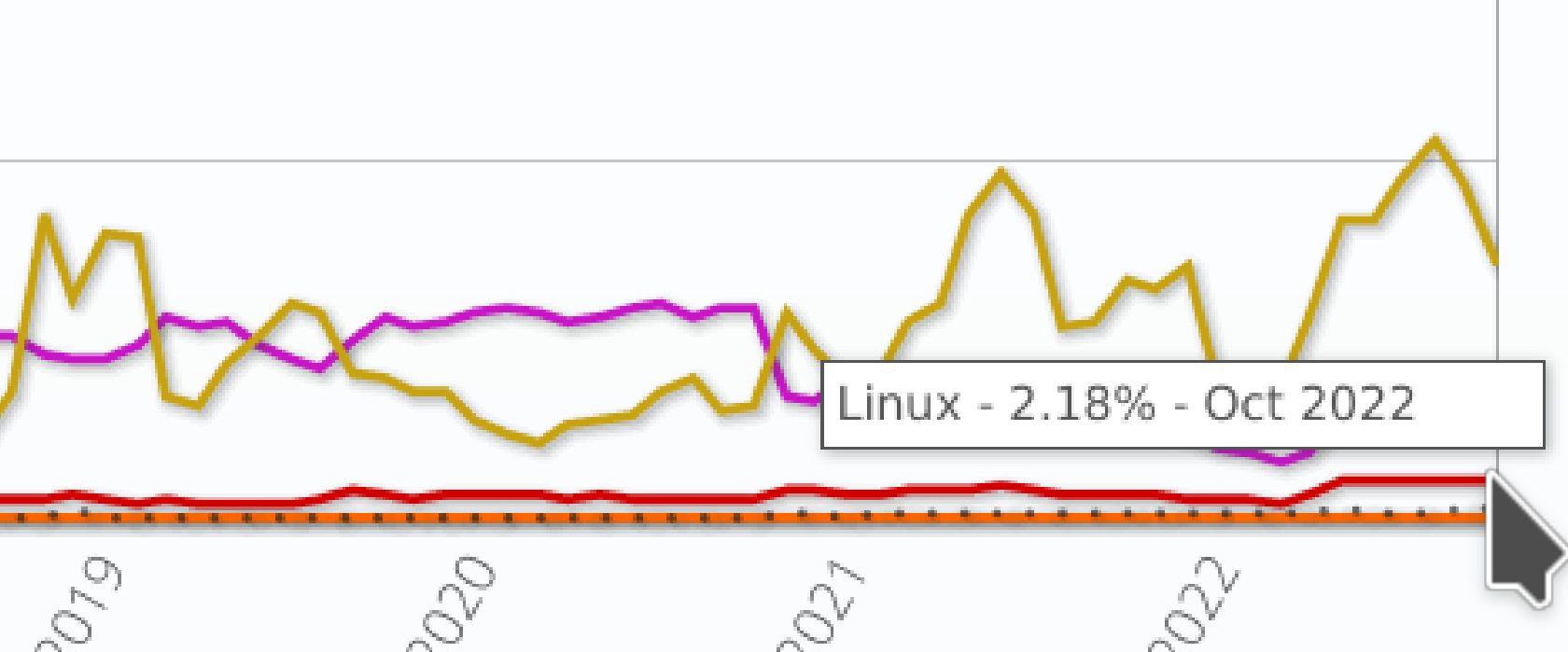

TWENTY hours ago we mentioned how Vista 11 had gained only 2.61% market share in 15 months, according to one survey. To put things in perspective, 15 months after it arrived at the scene (summer) and after billions of dollars spent on "marketing" (fake articles), plus bundling/preinstalls on new PCs, the market share of Vista 11 is similar to that of GNU/Linux, not even counting ChromeOS. The world's dominant operating system is now Android and Linux is running inside it.

"Africa's significance here is that it illuminates the impact on poverty at a time when more and more country enter a crisis of poverty, which means no more $1000 laptops with the latest Vista or whatever Apple markets to insecure people with a new credit card."It seems like a safe prediction that GNU/Linux will continue to grow and the Linux Foundation's role will be attacking the community while handing over GNU/Linux to monopolistic corporations.
Not many people noticed it, but the licence of the code connecting Linux to Rust is not GPL. This highlights some of the potential dangers of adding Rust to Linux. There are many such dangers. A reader recently suggested an article that might praise the benefits the GPLv2 and GPLv3 have provided and that they were adaptations to changing situations; now with the tsunami of Microsoft lobbyists the situation is moving yet again and GitHub is basically a massive attack on the GPL.
One associate noted that "[t]he GPL in and of itself is a clever hack of copyright law and has provided great benefit. Linus Torvalds himself has mentioned many times that very thing and once, right before he got abused, even stated in a video that it was his best decision ever to use the GPLv2."
Microsoft hates the GPL so much that its CEO publicly compared it to a cancer and went out of his way to lie about it, to demonise it, and to attack people who had come up with it. Entire companies were set up by Microsofters for the sole purpose of attacking the GPL.
So what is the GPL? It's a legal 'hack' that ensures people don't turn Free software into proprietary software. They need to give back changes that are made and delivered.
GPL is a key thing. The media barely mentions it, but it is the cornerstone of the movement. Aside from the lawsuits, it's one of the reasons why GNU/Linux grew so popular so fast, whereas the BSDs remained smaller (in relative terms; BSD is also a success story).
"Entryism has long been on the cards."Right about now Microsoft is trying to use secure [sic] boot as a GPL evasion tool. It's already using it to prevent GNU/Linux from even booting. Microsoft is trying to hire the man who did this and his current employer wishes to be acquired by Microsoft. There should have been an antitrust complaint, but instead we got sold cheaply to the abuser. Around the same time Microsoft made a plan to use GitHub as an anti-GPL weapon (that was in 2014) and "UEFI / restricted boot is a means of license evasion / violation," an associate explains. You may modify your operating system, but then it might not boot on your computer. It's a bit like TiVoization, which GPLv3 sought to tackle.
Either way, expect Microsoft to play "hardball" and do anything it can to sabotage GNU/Linux, including bribing the Linux Foundation to lie to us like Jim Zemlin constantly does. Entryism has long been on the cards. ⬆